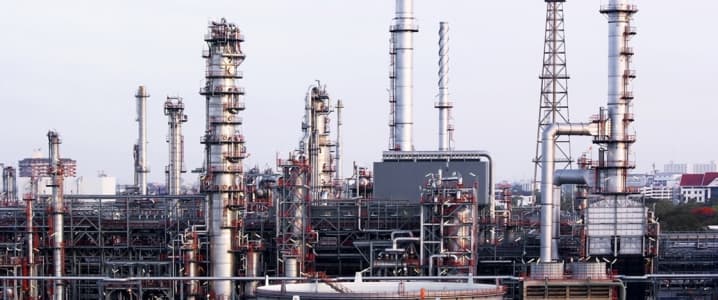On the surface, the announcement to unify Libya’s contending National Oil Corporations (NOCs) on 2nd July greenlights a turn towards the restoration of the oil sector. In an ambitious effort to return to pre-revolution production levels, the NOC’s merger with an energy company founded by the rival eastern government motions a reform of the industry at least on legal and commercial grounds.
After months of the rival NOCs and their affiliated factions locked in power struggles, frequently over local grievances, a rapprochement between the Tripoli and Tobruk energy companies comes with pledges to revive production and bolster export revenue.
The expectation is that a swift reopening of ports could consolidate crude output in the crippled oil sector. Until now, production has been set back by power failures and instability which has thwarted remedial efforts. Beset by insecurity, output has fallen to around 350,000 bpd which is set to become the lowest annual rate in decades. In the short term, considerable technical damage from recurrent closures and militant offensives will delay efforts to resume oil production to pre-revolution capacity.
Challenges ahead
Key challenges remain before any tangible revival will be felt. The recovery of the sector is undermined by the limited authority of Prime Minister Fayaz Seraj’s UN-backed Government of National Accord (GNA) and the many armed factions vying for control. Despite laying legal claim over oil revenues, the GNA struggles to extend its mandate on the ground. Since the start of the year, crude output has fallen after successive attacks by militant groups. Even with ISIS pushed onto the defensive and moved outside the oil rich Sirte port by pro-government forces, the risk of retaliations remains across remote pipelines.
Production dividends would be gained by restoring major oil fields, particularly those located in eastern Libya which have given the rival Tobruk government a leverage it is unlikely to forgo. Crucially, these installations are held by the rogue actor General Khalifa Haftar, whose interests align with impeding the agreement. Related: Saudi Arabia Offers Hope For An Oil Price Rally
Officially, the GNA depends on the Petroleum Facilities Guard (PFG) assigned to protect installations. Its leadership has so far proven to be an unreliable ally to the unity government. The PFG commander, Ibrahim al-Jadran’s affiliation with the GNA is limited to token support, exports have recurrently been blocked at various terminals under his oversight. Before it resumes crude pumping, the GNA will need to restructure the PFG to prevent its entanglement in political divisions. Considering that PFG forces narrowly control select ports rather than the necessary oil fields which feed into them, the recent deal is effectively a half measure.
Overplayed agreement
The ongoing insecurity in the country has led most energy analysts to forecast limited chances of the GNA ramping up production within a reasonable timeframe. Earlier inflated projections by Libyan oil officials have failed to materialize and are most telling of future trends. In the near term, the outlook for oil fields to be brought back online seems unlikely unless rival groups can bring some semblance of order to the country to resolve the issue of implementation which looms over the deal.
The NOC merger comes with conditions which could lead to another impasse. Both sides are struggling to reach a consensus on how best to split oil revenue. In addition, the deal includes promises of relocating the unified NOC to Benghazi, which lies in the rival eastern government’s remit that is subject to armed clashes. Before putting the deal into action, Libyan politicians and NOC officials entering into a single management system face the heavy task of overcoming the destabilizing influence of local militias.
The merger of rival oil companies risks becoming a symbolic act without any real control by the political arena over basic infrastructure. Ongoing party infighting, the threat of militant offensives and damage to redundant pipelines will make restoration of lost capacity a long and fragile process.
ADVERTISEMENT
By Elif Rahemtulla via Global Risk Insights
More Top Reads From Oilprice.com:
- Shale Drilling Set To Take Off In Argentina
- Russia Ramps Up Arctic Oil Production
- Oil Rally Hopes Crushed As Inventories Hit All-Time High

















